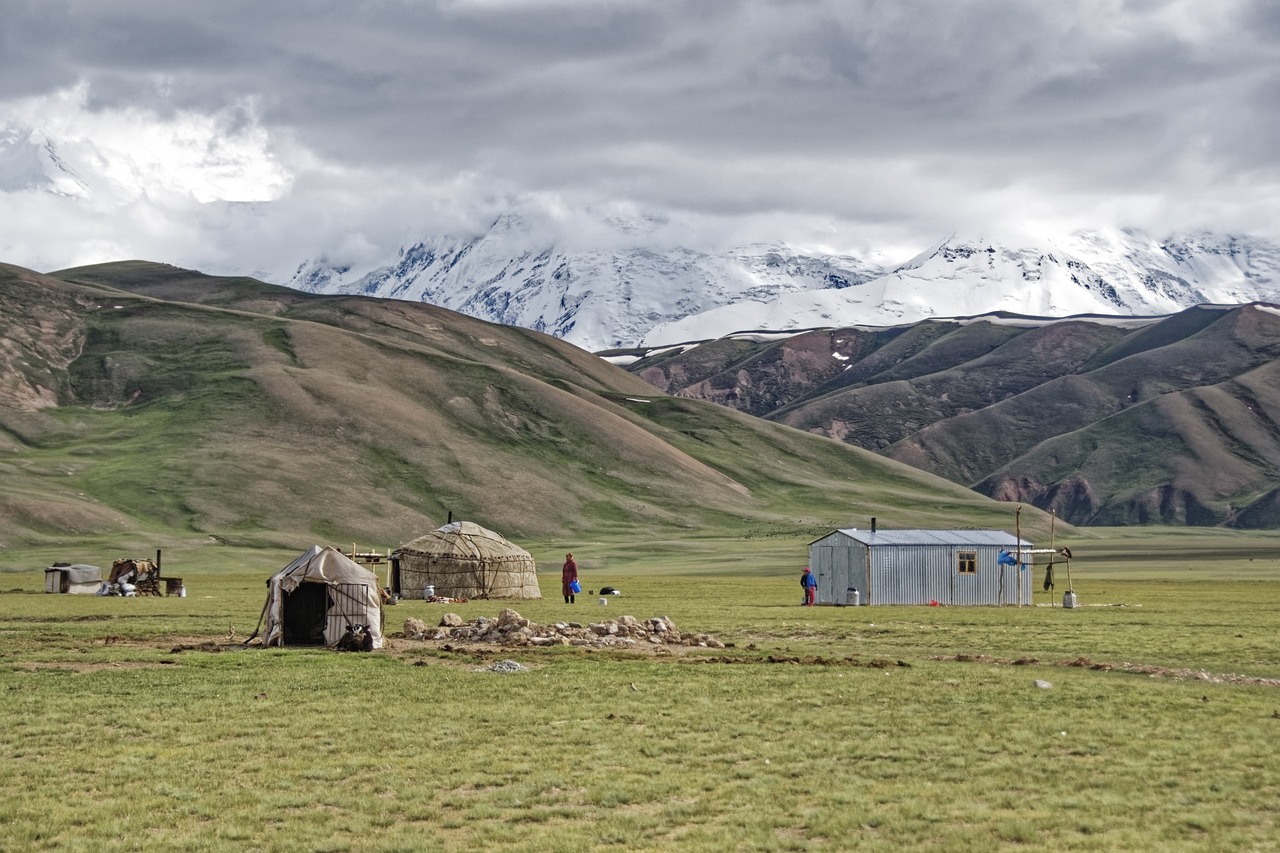Kyrgyzstan Video
Introduction
Kyrgyzstan, located in Central Asia, offers a unique experience for those working in the country. Managing finances and payments effectively is crucial to ensure a smooth and hassle-free experience. This article will provide detailed information on managing finances and payments while working in Kyrgyzstan, covering various aspects such as banking, currency, taxes, and payment methods.
Banking in Kyrgyzstan
- Opening a Bank Account: To manage your finances effectively, it is advisable to open a bank account in Kyrgyzstan. The major banks in the country include Kyrgyz Investment and Credit Bank, Demir Kyrgyz International Bank, and Optima Bank. Visit the bank of your choice with the required documents, such as your passport, work permit, and proof of residence, to open an account.
- Banking Services: Kyrgyzstan’s banks offer various services, including current and savings accounts, debit and credit cards, online banking, and mobile banking. These services make it convenient to manage your finances, make payments, and access your funds from anywhere in the country.
- ATMs and Cash Withdrawals: ATMs are readily available in major cities and towns in Kyrgyzstan. Make sure to check for any additional fees or charges before making cash withdrawals. It is advisable to inform your home bank about your travel plans to avoid any issues with ATM withdrawals.
- Foreign Currency Exchange: While Kyrgyzstan’s official currency is the Kyrgyzstani som (KGS), some establishments may accept US dollars or euros. However, it is recommended to exchange your currency to Kyrgyzstani som for everyday transactions. Currency exchange services are available at banks, exchange offices, and major hotels.
Taxes in Kyrgyzstan
- Income Tax: Individuals working in Kyrgyzstan are subject to income tax. The tax rates vary depending on the income bracket. It is essential to keep track of your income and consult a tax professional to ensure compliance with the tax regulations.
- Social Security Contributions: Employees in Kyrgyzstan are required to contribute to the social security system. These contributions cover healthcare, retirement benefits, and other social welfare programs. The contribution rates are based on the employee’s salary.
- Tax Deductions: Certain expenses, such as medical expenses or contributions to a pension fund, may be eligible for tax deductions. Keep track of these expenses and consult a tax professional to maximize your deductions and reduce your tax liability.
- Filing Tax Returns: Individuals working in Kyrgyzstan must file annual tax returns. The tax year in Kyrgyzstan runs from January 1st to December 31st. Ensure you gather all the necessary documents, such as income statements and expense receipts, to accurately file your tax return.
Payment Methods in Kyrgyzstan
- Cash Payments: Cash is widely accepted in Kyrgyzstan, especially for small transactions and in rural areas. Ensure you have enough cash on hand for day-to-day expenses, as some establishments may not accept card payments.
- Debit and Credit Cards: Major credit and debit cards, such as Visa and Mastercard, are accepted in larger establishments, hotels, and restaurants in urban areas. However, it is advisable to carry cash as a backup, especially when traveling to remote areas.
- Mobile Payment Apps: Mobile payment apps, such as O!Pay and Elsom, are gaining popularity in Kyrgyzstan. These apps allow users to make payments using their smartphones, providing a convenient and contactless payment option.
- Online Banking: Most banks in Kyrgyzstan offer online banking services, allowing you to manage your finances, pay bills, and transfer funds conveniently. Ensure you have a secure internet connection when accessing online banking platforms.
Kyrgyzstan Image 1:

Managing Finances in Kyrgyzstan
- Budgeting: Creating a budget is essential to effectively manage your finances in Kyrgyzstan. Consider your income, expenses, and financial goals to allocate funds accordingly. Track your expenses and adjust your budget as needed.
- Expense Tracking: Keep track of your expenses by maintaining a record of receipts and invoices. This will help you analyze your spending patterns and identify areas where you can save money.
- Emergency Fund: Building an emergency fund is crucial to handle unexpected expenses or financial emergencies. Aim to save a portion of your income regularly to build a financial safety net.
- Financial Planning: Consider consulting a financial advisor to help you with long-term financial planning, such as investments, retirement planning, and insurance coverage.
Living Costs in Kyrgyzstan
- Accommodation: The cost of accommodation in Kyrgyzstan varies depending on the location and type of property. Renting an apartment in the capital city, Bishkek, can range from $300 to $800 per month, while prices in other cities may be lower.
- Transportation: Public transportation, such as buses and minibusses (marshrutkas), is affordable in Kyrgyzstan. The fare for a single trip is typically around 10-20 KGS ($0.12-$0.24). Taxis and ridesharing services are also available at reasonable prices.
- Groceries: The cost of groceries in Kyrgyzstan is relatively affordable. Local markets and supermarkets offer a wide range of fresh produce, dairy products, and other essentials at reasonable prices.
- Dining Out: Eating out in Kyrgyzstan can be inexpensive, especially at local eateries and street food stalls. International restaurants and upscale establishments may have higher prices.
Kyrgyzstan Image 2:

Managing Finances as an Expat in Kyrgyzstan
- Understanding Local Customs: Familiarize yourself with the local customs and traditions related to finances and payments. This will help you navigate the financial landscape and avoid any misunderstandings.
- Language: Learning basic Kyrgyz or Russian phrases related to finances can be beneficial when interacting with locals or conducting financial transactions.
- Insurance: Consider obtaining health insurance and other necessary insurance coverage to protect yourself financially in case of unforeseen circumstances.
- Work Permits and Visa Compliance: Ensure you have the necessary work permits and comply with visa regulations to avoid any legal issues that could impact your financial stability.
Business Expenses and Reimbursements
- Keep Detailed Records: Maintain detailed records of your business expenses, including receipts and invoices. This will help you accurately track your expenses and facilitate any reimbursement processes.
- Submit Expense Reports: Familiarize yourself with the company’s expense reimbursement policy and procedures. Submit your expense reports in a timely manner, including all necessary documentation.
- Communicate with Finance Department: If you have any questions or concerns regarding business expenses and reimbursements, communicate with the finance department or relevant personnel for clarification.
Kyrgyzstan Image 3:

Conclusion
Managing finances and payments while working in Kyrgyzstan is essential for a smooth and stress-free experience. By understanding the banking system, tax obligations, payment methods, and living costs, you can effectively manage your finances and make informed financial decisions. Remember to consult professionals when needed and maintain accurate records to ensure compliance and financial stability.
References
– Kyrgyz Investment and Credit Bank: kyrgyzbank.kg
– Demir Kyrgyz International Bank: demirbank.kg
– Optima Bank: optimabank.kg
– O!Pay: opay.kg
– Elsom: elsom.kg


